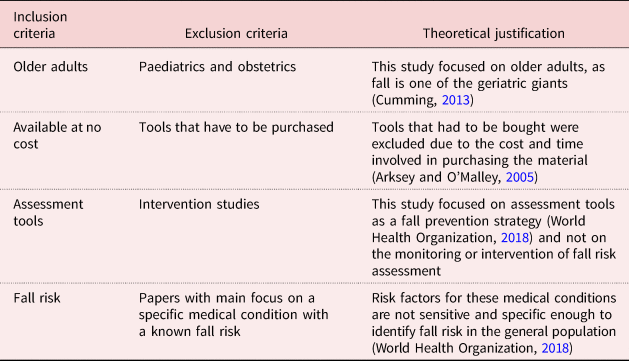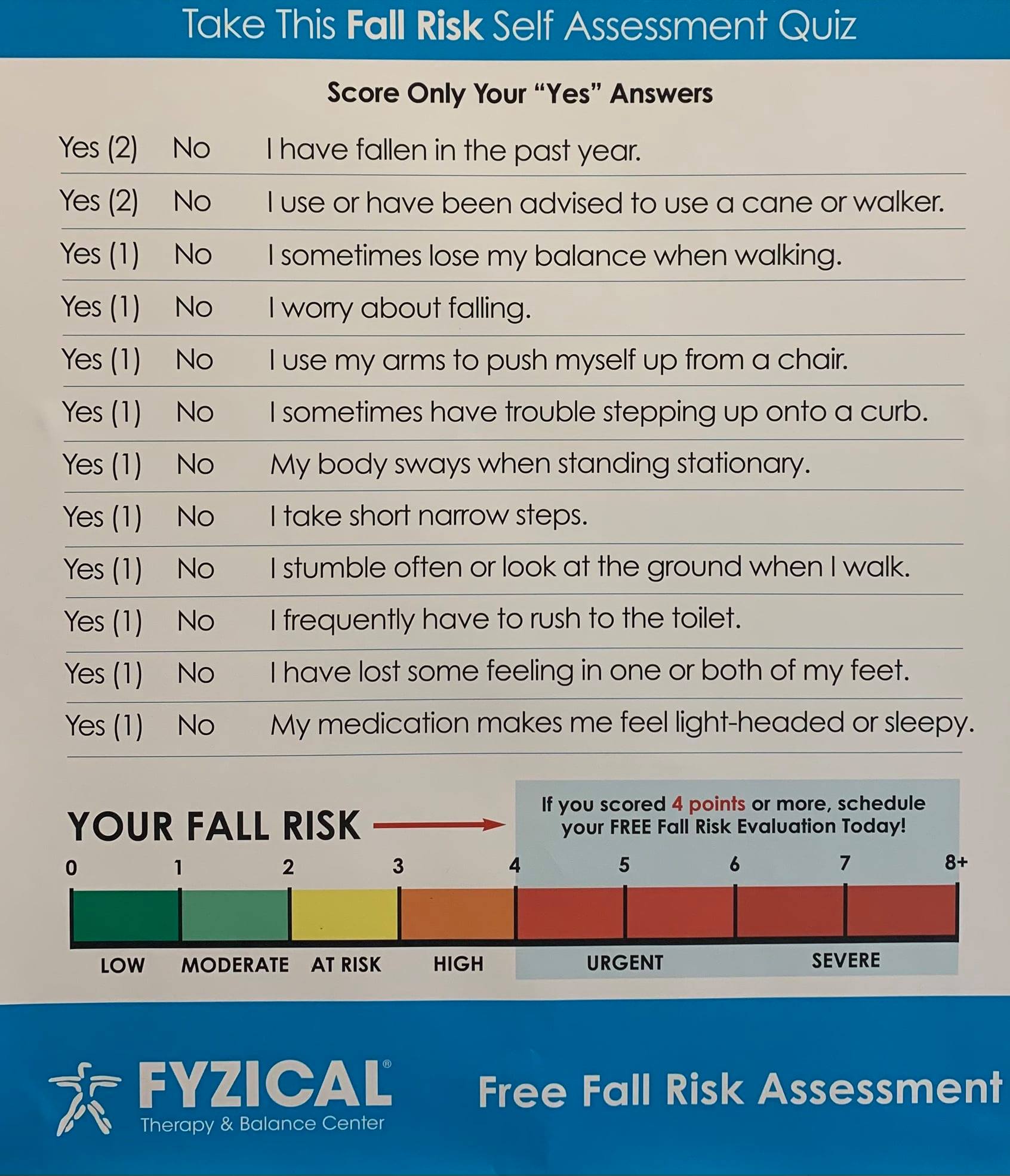The Main Principles Of Dementia Fall Risk
The Main Principles Of Dementia Fall Risk
Blog Article
Rumored Buzz on Dementia Fall Risk
Table of ContentsWhat Does Dementia Fall Risk Do?Some Known Facts About Dementia Fall Risk.The 45-Second Trick For Dementia Fall RiskWhat Does Dementia Fall Risk Mean?The Main Principles Of Dementia Fall Risk
The FRAT has 3 sections: drop danger standing, threat variable checklist, and activity plan. An Autumn Risk Status consists of information about background of current drops, drugs, mental and cognitive standing of the individual - Dementia Fall Risk.If the patient scores on a danger variable, the matching variety of factors are counted to the individual's autumn danger rating in the box to the much best. If a client's loss risk rating amounts to 5 or higher, the individual goes to high threat for drops. If the patient scores only four factors or lower, they are still at some danger of dropping, and the registered nurse ought to utilize their ideal scientific assessment to handle all loss threat factors as component of an all natural treatment strategy.
These common methods, in general, help develop a safe atmosphere that decreases accidental falls and defines core preventive measures for all clients. Indicators are important for clients at risk for drops.
Everything about Dementia Fall Risk
For instance, wristbands should consist of the individual's last and first name, day of birth, and NHS number in the UK. Details must be printed/written in black against a white history. Just red color should be utilized to signal unique person standing. These recommendations follow existing developments in individual identification (Sevdalis et al., 2009).
Items that are as well much might require the person to get to out or ambulate unnecessarily and can potentially be a danger or add to drops. Aids stop the individual from going out of bed without any aid. Registered nurses reply to fallers' call lights faster than they do to lights started by non-fallers.
Visual impairment can significantly create falls. Hip pads, when put on correctly, might minimize a hip crack when fall happens. Keeping the beds closer to the floor minimizes the risk of falls and severe injury. Putting the cushion on the floor substantially lowers autumn risk in some medical care setups. Reduced beds are created to lessen the range a client drops after moving out of bed.
The Greatest Guide To Dementia Fall Risk
Clients who are high and with weak leg muscular tissues that attempt to rest on the bed from a standing position are likely to drop onto the bed since it's also reduced for them to decrease themselves securely. Additionally, if a high individual efforts to stand up from a low bed without help, the client is most likely his comment is here to drop back down onto the bed or miss out on the bed and fall onto the flooring.
They're developed to advertise prompt rescue, not to prevent falls from bed. Aside from bed alarm systems, raised guidance for risky individuals also may assist stop drops.

Patients with a shuffling stride increase autumn chances dramatically. To reduce autumn threat, shoes should be with a little to no heel, thin soles with slip-resistant step, and support the ankles. Recommend individual to utilize nonskid socks to stop the feet from moving upon standing. Urge individuals to put on ideal, well-fitting shoesnot nonskid socks for motion.
Excitement About Dementia Fall Risk
Patients, especially older grownups, have minimized visual capacity. Lighting a strange atmosphere aids raise visibility if the individual need to obtain up during the night. In a research study, homes with appropriate lighting report less drops (Ramulu et al., 2021). Improvement in lighting at home might decrease loss prices in older grownups (Dementia Fall Risk). The usage of gait belts by all healthcare companies can promote security when helping clients with transfers from bed to chair.

Sitters work for ensuring a secure, secured, and safe atmosphere. Researches showed extremely low-certainty proof that caretakers lower autumn risk in intense care hospitals and just moderate-certainty that alternatives like video clip surveillance can decrease sitter usage without boosting loss risk, suggesting that sitters are not as helpful as initially believed (Greely et al., 2020).
The Definitive Guide for Dementia Fall Risk

Increased physical fitness minimizes the threat for falls and limits injury that is received when fall transpires. Land and water-based exercise programs might be similarly valuable on equilibrium and stride and thereby decrease the threat for falls. Water exercise may add a positive benefit on balance and stride for ladies 65 years and older.
Chair Rise Workout is a simple sit-to-stand exercise that helps reinforce the muscular tissues in the thighs and buttocks and improves movement and freedom. The goal is to do Chair Increase exercises without using hands as the client comes to be stronger. See resources area for a detailed direction on exactly how to execute Chair Rise exercise.
Report this page